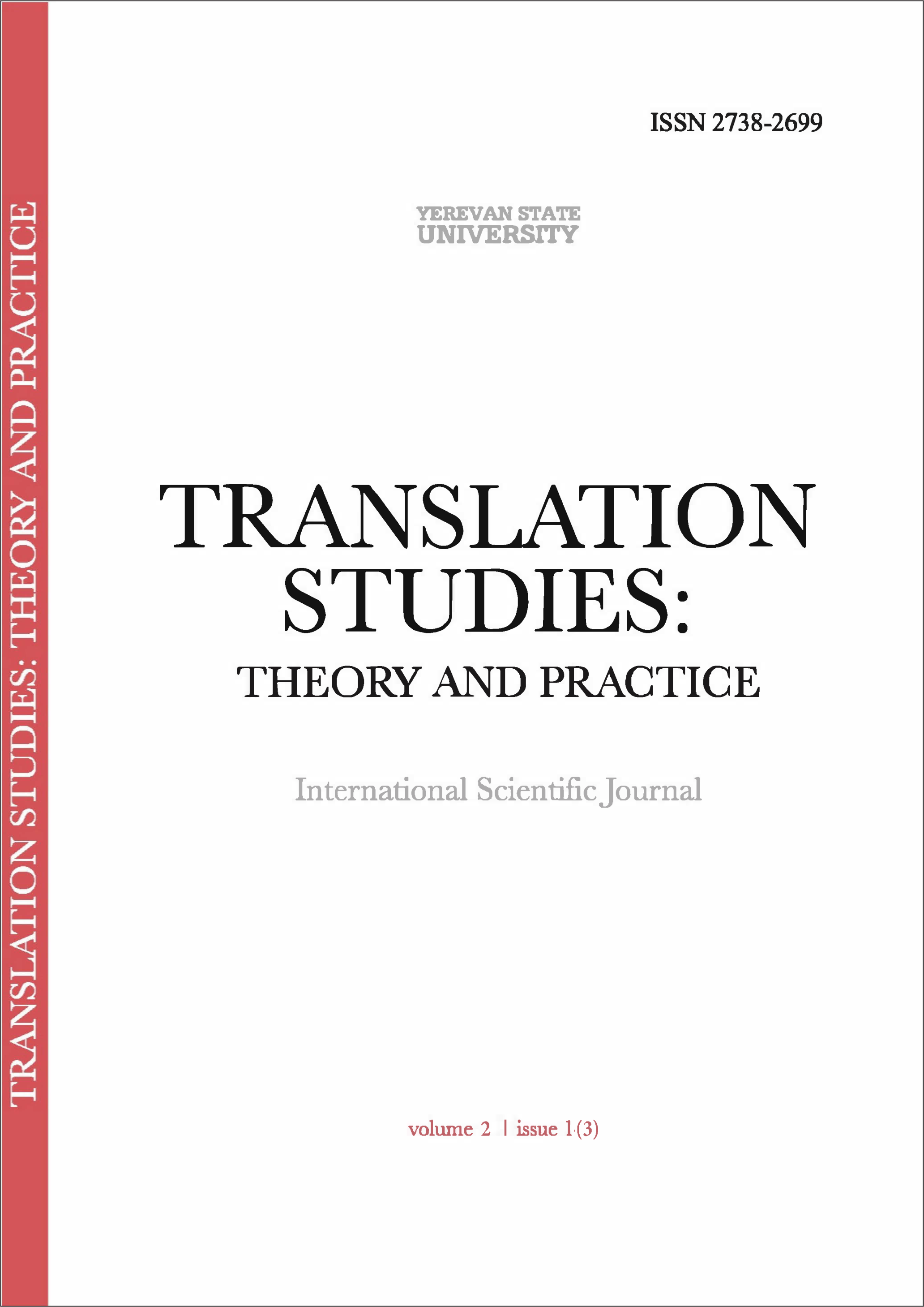Strategies of Overcoming Challenges in Travel Guides Translation (a Corpus-Based Study)
DOI:
https://doi.org/10.46991/TSTP/2022.2.1.058Keywords:
comparative translation analysis, travel guides, translation peculiarities, translation strategies, corpora studyAbstract
The action research is a parallel corpus study that delves into the translation peculiarities of translated English travel guides and a few websites. The corpus is based on Newmark`s strategies which endorse the availability of effective analyses. The results of the findings have shown: (a) as a full expression of simplification, one of the translation universals, translated English tourism texts are more concise than their Armenian source texts through the omission of detailed information in listings and culture-specific information in the original ; (b) translated English tourism texts are more formal and detached in tone than that of Armenian original through the frequent adoption of nominalization; (c) translation strategies are of great avail to find out mistranslations and misinterpretations of the tourist texts. The very research instantiated intricacies between the translated English tourism texts and the source text in Armenian by highlighting the thematic and formal features of tourism discourse in translation, which may also become an essential pedagogic platform in translating tourism texts from Armenian into English.
References
Baker, M. 1996 [1992]. In Other Words: A Coursebook on Translation. London and New York: Routledge.
Cabré, M.T. 2010. “Terminology and Translation.” In Handbook of Translation Studies, edited by Y. Gambier, L. van Doorslaer. Amsterdam/Philadelphia: J.Benjamins Publishing Company.
Dann, G.M.S. 1996. The Language of Tourism – A Sociolinguistic Perspective. Oxford: CAB International.
Dann, M.S. 2012. Remodelling a Changing Language of Tourism: from Monologue to Dialogue and Trialogue. PASOS 10 (4): 59-70.
Gotti, M. 2006. “The Language of Tourism as Specialized Discourse.” In Translating Tourism. Linguistic/Cultural Representations, edited by O. Palusci, S. Francesconi. Editrice Università degli Studi di Trento: Trento: 15-34.
Kelly, D. 1997. The Translation of Texts from the Tourist Sector: Textual Conventions, Cultural Distance and Other Constraints. TRANS 2: 33-42.
Newmark, P. 1993. Paragraphs on Translation. Clevdon/Philadelphia/Adelaide: Multilingual Matters Ltd.
Zare-Behtash, E. 2009. “A Diachronic Study of Domestication and Foreignization Strategies of Culture-Specific Items: in English-Persian Translations of Six of Hemingway’s Works/Esmail Zare-Behtash, Sepideh Firoozkoohi.” World Applied Sciences Journal, 7(12), 1576-1582.
Downloads
Published
Issue
Section
License
Copyright (c) 2022 Irina Mkhitaryan, Tsoghik Grigoryan

This work is licensed under a Creative Commons Attribution-NonCommercial 4.0 International License.





